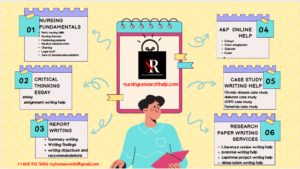Mastering Nursing Interview Questions: A Comprehensive Guide for Success
Mastering Nursing Interview Questions: A Comprehensive Guide for Success
Nursing interviews are a critical step in securing a nursing position, whether you’re a newly graduated nurse or an experienced professional looking to advance your career. To excel in these interviews, it is essential to be well-prepared and confident in your responses. This blog post aims to equip you with a comprehensive list of nursing interview questions and provide valuable tips on how to answer them effectively. By familiarizing yourself with these questions and practicing your responses, you’ll be ready to shine during your nursing interview.

Understanding Nursing Interviews: Key Considerations
Before diving into the specific interview questions, let’s explore some key considerations to keep in mind when preparing for your nursing interview. These factors will help you approach the interview with confidence and poise.
1. Research the organization:
Gain a thorough understanding of the healthcare facility or organization you are interviewing with. Familiarize yourself with their mission, values, services, and any recent news or accomplishments. This knowledge will demonstrate your genuine interest in the organization and help you tailor your responses accordingly.
2. Review your resume and experiences:
Take the time to carefully review your resume and refresh your memory on the key experiences, skills, and achievements you have listed. Be prepared to discuss specific examples that highlight your nursing expertise, patient care abilities, and teamwork skills.
3. Practice answering common questions:
While you can’t predict every question you’ll be asked, practicing your responses to common nursing interview questions will boost your confidence and help you articulate your thoughts clearly. Consider role-playing with a friend or family member, or even recording yourself to evaluate your performance.

Common Nursing Interview Questions
Now, let’s delve into the most common nursing interview questions you may encounter during your interview. While these questions may vary depending on the specific position and organization, they provide a solid foundation for your interview preparation.
Questions about your qualifications and background:
1. Can you tell us about your nursing education and qualifications?
2. What made you choose a career in nursing?
3. Describe any specialized training or certifications you have obtained.
4. How do you stay updated on the latest nursing practices and developments?
Questions about your clinical experience and skills:
1. Can you share an example of a challenging patient case you encountered and how you handled it?
2. How do you prioritize patient care when faced with multiple tasks or emergencies?
3. What is your approach to delivering compassionate and patient-centered care?
4. How do you ensure patient safety and prevent medical errors?
Questions about patient care and communication:
1. How do you establish rapport and build trust with your patients?
2. Describe a situation where you had to communicate difficult or sensitive information to a patient or their family.
3. How do you handle conflicts or disagreements with patients or colleagues?
4. Can you share an example of a time when you advocated for a patient’s needs or rights?
Questions about teamwork and collaboration:
1. How do you contribute to effective interdisciplinary collaboration within a healthcare team?
2. Describe a situation where you had to resolve a conflict or disagreement within a team.
3. How do you support and empower your colleagues in providing high-quality patient care?
4. Can you give an example of a successful teamwork experience and its impact on patient outcomes?
Questions about your ability to handle difficult situations:
1. How do you manage stress and maintain composure in high-pressure situations?
2. Can you share an example of a time when you faced a challenging ethical dilemma and how you resolved it?
3. How do you handle the emotional demands of nursing and ensure self-care?
4. What steps do you take to ensure your own professional growth and development?
Questions about your professional development and goals:
1. Where do you see yourself in five years in terms of your nursing career?
2. How do you stay motivated and engaged in your profession?
3. Can you discuss any leadership roles or experiences you have had in nursing?
4. What steps do you take to stay current with evidence-based nursing practice?
Tips for Preparing and Answering Nursing Interview Questions:
To ensure you make the best impression during your nursing interview, consider the following tips:
1. Research the organization:
Gain a deep understanding of the organization’s values, mission, and culture. This knowledge will help you align your answers with their specific needs and goals.
2. Prepare your responses:
Take the time to prepare thoughtful and concise responses to common nursing interview questions. Practice your answers to ensure clarity and confidence during the interview.
3. Highlight your accomplishments:
Be prepared to discuss specific examples from your nursing experience that demonstrate your skills, achievements, and dedication to patient care.
4. Demonstrate empathy and compassion:
Nursing is a profession that requires empathy and compassion. Highlight your ability to connect with patients, understand their needs, and provide compassionate care.
5. Showcase your teamwork skills:
Nursing is a collaborative profession, and effective teamwork is crucial. Provide examples of successful teamwork experiences and emphasize your ability to work well within a team.
6. Stay updated on current nursing practices:
Demonstrate your commitment to professional growth by discussing how you stay informed about the latest nursing research, best practices, and advancements in the field.
7. Ask thoughtful questions:
Prepare a list of insightful questions to ask the interviewer, demonstrating your genuine interest in the position and your desire to learn more about the organization.
Conclusion:
By familiarizing yourself with common nursing interview questions and practicing your responses, you’ll be well-prepared to confidently tackle any interview scenario. Remember to showcase your qualifications, clinical skills, patient-centered approach, teamwork abilities, and commitment to professional growth. Combine your knowledge and preparation with genuine enthusiasm and passion for nursing, and you’ll be on your way to acing your nursing interviews and securing the position of your dreams. Good luck!

Nursing Assignment Help
Additionally, if you’re a nursing student seeking support with your assignments, we’re here to help. We at Nursing Research Help understand the demands of nursing education and the importance of submitting high-quality assignments on time. Our professional assignment help services for nursing students are designed to alleviate the academic burden and allow you to focus on your practical training and clinical experiences.
Our team of experienced nursing writers is well-versed in various nursing specialties and can assist you with a wide range of assignments, including research papers, case studies, care plans, and more. Rest assured that our services are tailored to meet your specific requirements and adhere to academic standards. With our reliable assignment help, you can enhance your academic performance and excel in your nursing studies. Don’t hesitate to reach out to us for personalized assistance that will support your educational journey.

























